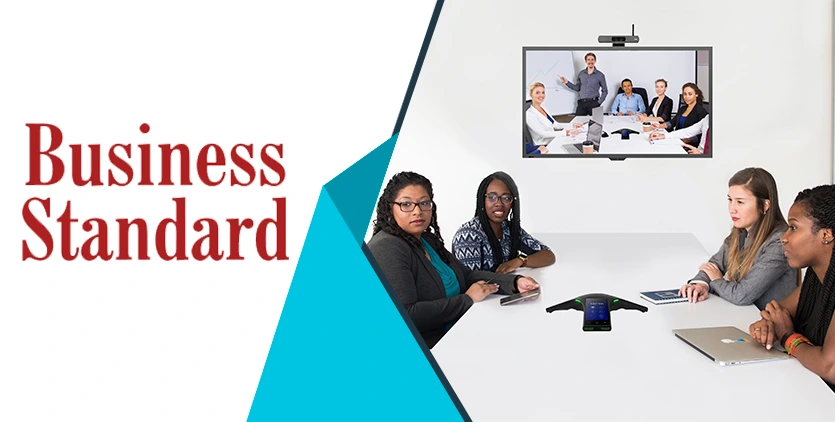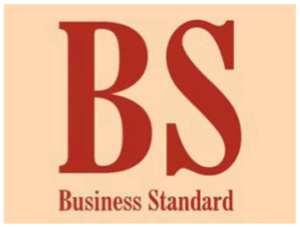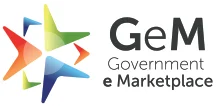
BSL’s Implementation Of PeopleLink’s Video Conferencing Solutions At Mumbai Offices To Overcome Low Bandwidth Issues
About Business Standard
 Business Standards news paper is India’s first English news paper. It is the most preferred news paper by most of the business people around India. Business Standard news paper is a daily published news paper in two languages, English and Hindi. It mainly focuses on deliberating the Business information of India and International. The Business Standard Limited also publishes two monthly magazines; they are the Indian Management and Business Standard Motoring and a quarterly magazine named Asian Management Review. The Business Standard Limited (BSL) also has a books division, which publishes books under the BS books imprint. The major proportion of BSL is owned by the Kotak Mahindra Group, but is run independently through a board of directors, with TN Ninan (a former editor of the newspaper and perhaps India’s best known business journalist) as chairman and editorial director.
Business Standards news paper is India’s first English news paper. It is the most preferred news paper by most of the business people around India. Business Standard news paper is a daily published news paper in two languages, English and Hindi. It mainly focuses on deliberating the Business information of India and International. The Business Standard Limited also publishes two monthly magazines; they are the Indian Management and Business Standard Motoring and a quarterly magazine named Asian Management Review. The Business Standard Limited (BSL) also has a books division, which publishes books under the BS books imprint. The major proportion of BSL is owned by the Kotak Mahindra Group, but is run independently through a board of directors, with TN Ninan (a former editor of the newspaper and perhaps India’s best known business journalist) as chairman and editorial director.
Business Requirement / Challenges
As Business Standard newspaper is one of the leading business class news presenters for the business readers at various parts of India. It has got many numbers of editorial offices in India. In order to build up an effective communication channel between these offices, the BSL has intended to integrate the video conferencing solution. Initially they had approached PeopleLink for connecting their 15 locations. Bandwidth was a major criteriaa for BSL; they wanted to achieve their video conferencing, under Master/Slave Server. Voice over Switching was also one of the criterions for BSL. Practically there was no possibility to have bandwidth allocated on a central site, so they had implemented the Master Slave architecture, to manage the bandwidth. Here the Master Server of BSL was located at Delhi and the Slave Server(s) were located at Mumbai. The editorial offices which belong to north India will login through the Master server and the editorial offices that belong to the south and west India would login through the Slave server. The four major USPs for the business needs of the BSL included: the master slave, low bandwidth, voice over switching and P2P. For conducting multiparty conferencing they could join through the MCU.
The Challenge
In order to manage the video conferencing under low bandwidth, the BSL have opted Master/Slave server. Where in the Master server is placed at Delhi and the Slave server is placed at Mumbai. BSL have asked PeopleLink to show the demonstration for video conferencing on master slave architecture. They have also asked for the voice over switching option. Executing the video conferencing, in low bandwidth is the challenge, where the Master Slave server, is being used by the BSL
Selection Process & Competitors involved in Case
In the selection process, PeopleLink executives have showed a demonstration to the chief manger of BSL. As PeopleLink solution has embraced all the specifications that are given by the BSL, it was an easy task for PeopleLink to convince the chief manger and IT head to approve PVCS. With-in a short span of time, the chief manager and the IT head of BSL have got convinced with the solution and approved PO for 15 licenses. Later on they have also purchased 20 P2P licenses.
Solution Offered
BSL implemented PeopleLink Video Conference solution after seeing the performance of the product through Data Card. Initially they started with an MCU, and implemented the same in their offices across Mumbai with this they were able to implement the technology which is portable, easy to use, suited to their requirement as well as budget.
Business Results achieved by the Client
With the aid of the PeopleLink solution, BSL is now capable of conducting, effective video communication among their editorial offices. They are now capable of conducting the conferences, within the low bandwidth, as they are now making use of the Master/Slave architecture, the conferencing can be done under low bandwidth. The editorial offices which fall under north India are logging in from the Master server which is located at Delhi and the editorial offices which are located in the south and west region of India are logging in through the Slave server which is located at Mumbai. They are now able to conduct P2P meetings between their managers, the P2P is nothing but the fact that every manger can have single party chat. If they want to conduct multiparty conferencing they can always shift for MCUs.



